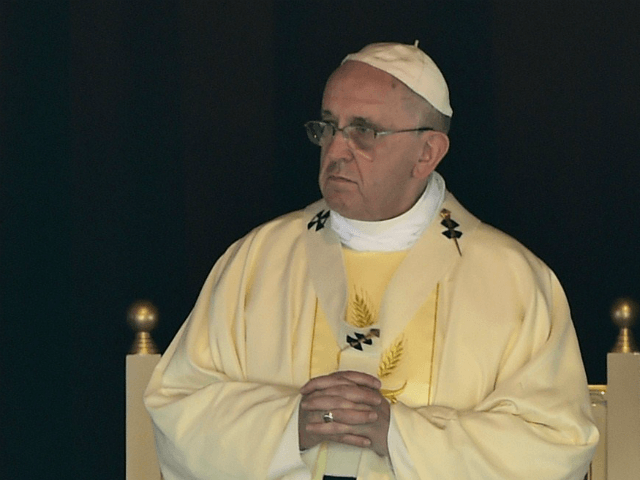Pope Francis proposed an interesting dichotomy Monday between opting for people or the economy as the world begins to emerge from the coronavirus pandemic.
As we approach the hopefully proximate end of this pandemic, the pope said at his Mass on Monday morning, we are faced with an option: “either our bet will be for life, for the resurrection of peoples or it will be for the god of money, returning to the tomb of hunger, slavery, wars, weapons factories, children without education … that is the tomb.”
The pontiff was drawing a comparison between Christ’s resurrection on Easter Sunday and the world’s emergence from the lockdown measures against the spread of the coronavirus. We cannot go back to business as usual, the pope proposed, but must live now as resurrected people with higher values.
According to many experts, however, the poor will suffer disproportionately from the economic downturn caused by the extreme measures adopted to counter COVID-19. While many affluent people have reserves of savings and can get by even without working for a while, the poor do not have this luxury since a great many live hand to mouth.
Italy, for example, has reported large numbers of people who are paid under the table and therefore have no unemployment benefits when they are unable to work.
Some 300,000 people are paid under the table in Sicily alone, out of 3,700,000 in all of Italy, and most now find themselves without any income, a situation that the Mafia could exploit as people get desperate, warned Leoluca Orlando, the mayor of Palermo, Sicily.
“Discomfort and malaise are growing and we are recording worrying reports of protest and anger that is being exploited by criminals who want to destabilize the system,” Mr. Orlando said in late March.
“The more time passes, the more resources are exhausted,” he said. “The little savings people have are running out.”
“In the south, there is a very fragile socio-economic balance, where black market work, mafias, and crime thrive,” noted the former president of the Italian Senate, Pietro Grasso.
“There is a portion of population that leaves the house in the morning with the sole aim of feeding their family, without a reference point. All these families now have no chance of finding a solution to their livelihood,” he said.

COMMENTS
Please let us know if you're having issues with commenting.